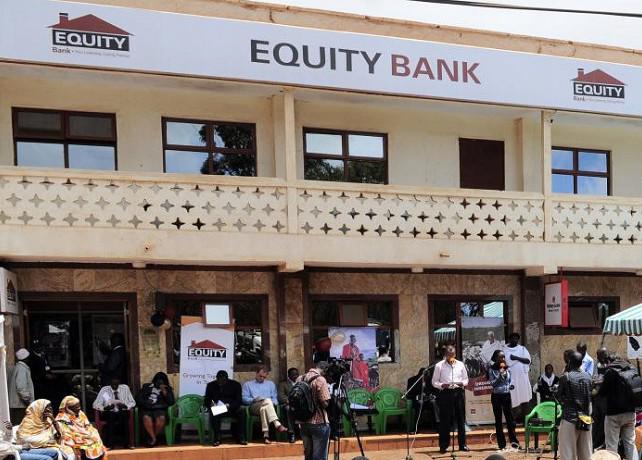
Equity Bank reported its first quarter results for 2014 which showed a 20.8% rise in profits before tax to KES 5.4 billion from KES 4.47 billion recorded in a similar period last year. Total interest income increased to KES 8.42 billion from KES 7.99 billion recorded in Q1 2013 as a result of improved lending and declining lending rates. Interest received on loans and advances improved by 4.3% to KES 7.3 billion from KES 7 billion. Total interest expenses stood at KES 1.4 billion, up 26% from KES 1.11 billion in Q1 2013 driven mainly by 37.7% increase in interest paid on customer deposits which rose to KES 1 billion. Earnings per share improved to KES 1.05 from KES 0.87 in Q1 2013.
Whats noticeable about the results is the increasing non-interest income portion of its revenues which is pointer to a future trend. Other fees and commissions jumped by 25% to KES 2 billion to account for 43% of the total non-interest income and growing. This will bode well with investors since cutting reliance on interest incomes sort of shields the bank from interest income fluctuations. This means that we could see the bank launch its telecoms services arm in the fast-growing mobile phone-based financial services market sooner than later in a bid to maintain the growth trajectory of this income segment. The bank recently received a Mobile Virtual Network Operator (MVNO) license which gives it the platform to offer voice, data and mobile money transfer services essentially opening up a whole new revenue stream.
The interim results also revealed improvements on its efficiency owing to its continued staff rationalisation and investments in technology. Cost-to-income ratio dropped to 48% from 50% which is quite commendable considering the banks huge size. Its newly installed core banking system, which is said to have a capacity of 35 million accounts, is set to allow its 8.7 million customers transact seamlessly across the five countries it has operations. This will have an amazing effect on its customer relationships. Investors will also cheer as savings derived from infrastructure and maintenace costs will certainly lift the banks bottom line performance which adds more money on their pocket book.
| KES '000,000 | 2008 | 2009 | 2010 | 2011 | 2012 | 2013 |
|---|---|---|---|---|---|---|
| Customer Deposits | 50,334 | 69,843 | 104,431 | 144,165 | 167,913 | 194,839 |
| Total Assets | 78,879 | 100,812 | 143,018 | 196,294 | 243,170 | 277,729 |
| Loan Portfolio | 44,194 | 63,378 | 78,302 | 113,834 | 135,692 | 171,363 |
| Profits After Tax | 5,022 | 5,278 | 9,045 | 12,834 | 17,419 | 19,004 |
Exceptional performance from the bank subsidiaries is also worth mentioning considering they accounted for 15% of the total revenues led by its South Sudan branches which generated half of the total sum. It seems the ongoing political instability is not such a huge threat to business as its is perceived to be. The 9 branches in the country brought in KES 250 million in profits despite huge loan loss provisions as a result of the unresolved power struggle. Provisions amounting to KES 700 million were set aside otherwise total incomes would have topped at a whopping KES 1 billion. That said, upside potential remains huge especially when the country returns to normalcy. As it is, the turbulent situation is already benefiting the bank as customers from smaller banks are transferring to the bank.
Looking at its recent price performance, the results seem to have given it a much needed boost since the stock has been under heavy selling pressure in recent months. Investors should watch for a move towards the resistance line at KES 34.5 to consolidate before a move higher.
